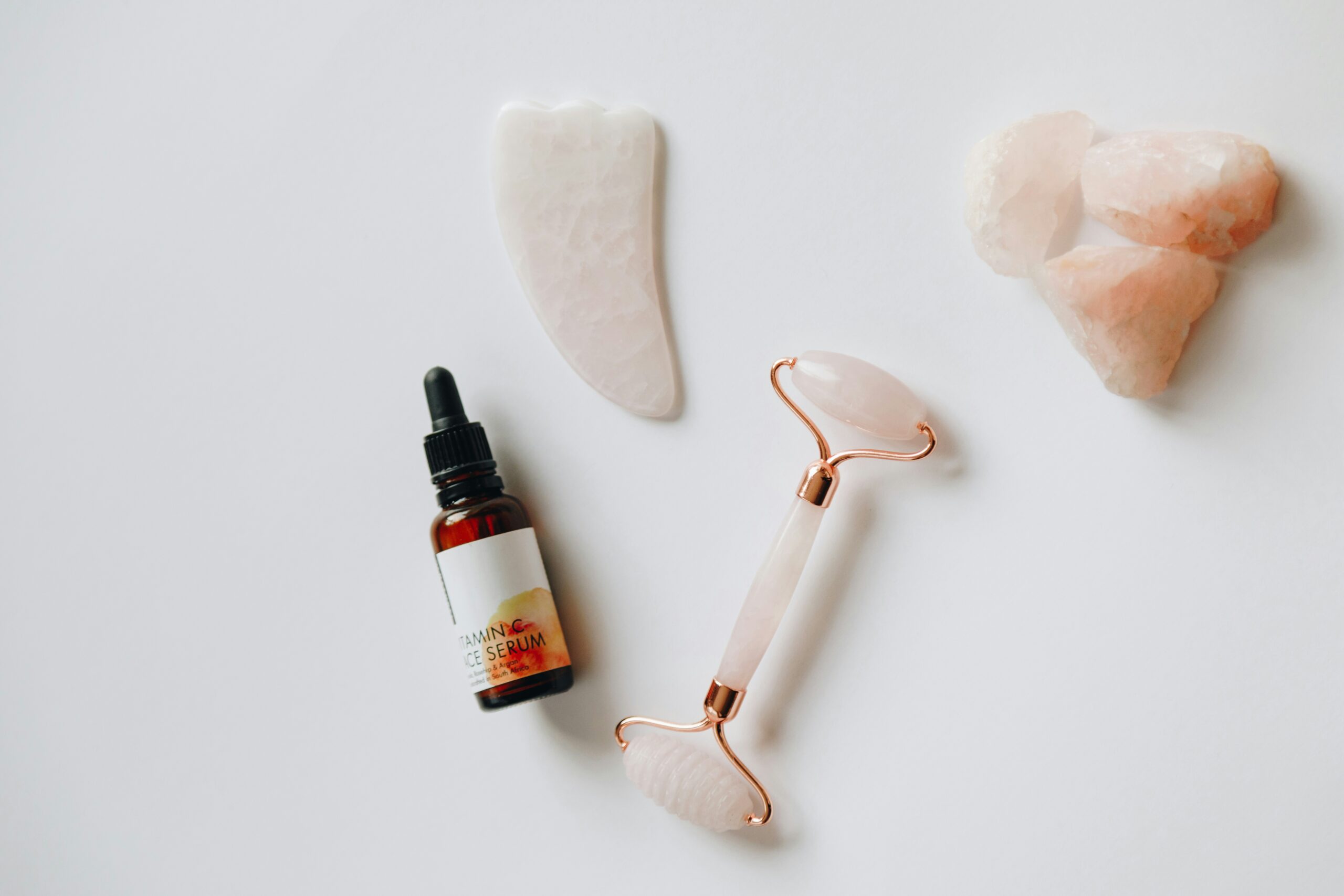Understanding Your Skin Type
Identifying your skin type is a fundamental step towards achieving an effective skincare routine. It serves as the foundation for selecting the right products and techniques tailored to your individual needs. The primary skin types include oily, dry, combination, sensitive, and normal. Each of these categories has distinct characteristics that influence how you should care for your skin.
To determine your skin type, you can perform a simple test at home. Start by cleansing your face with a gentle cleanser and wait for approximately an hour. Observe how your skin feels during this time. If your skin appears shiny and feels oily, especially in the T-zone (forehead, nose, and chin), you may have oily skin. Conversely, if your skin feels tight, looks dull, or has visible flakes, it likely indicates dry skin. If your skin exhibits both oily and dry characteristics in different areas, you fall into the combination category. Sensitive skin often reacts quickly to products or environmental factors, showing signs of redness or irritation. Lastly, if your skin feels comfortable without excessive oiliness or dryness, you probably have normal skin.
Each skin type has common concerns that require attention to maintain a healthy and glowing complexion. Oily skin is often prone to acne due to excess sebum production, while dry skin can lead to irritation and flakiness. Combination skin may have challenges managing oiliness in certain areas while ensuring hydration in others. Sensitive skin necessitates gentle products to avoid adverse reactions, whereas normal skin generally has fewer issues but still benefits from routine care.
Understanding your skin type is essential for choosing appropriate products that not only address specific concerns but also contribute to an enhanced natural glow. Tailoring your skincare regimen based on this knowledge can lead to better results and a more confident appearance.
The Essential Steps of a Skincare Routine
An effective skincare routine is vital for achieving and maintaining glowing, healthy skin. The foundation of any regimen consists of five essential steps: cleansing, exfoliating, toning, moisturizing, and sun protection. Each of these steps serves a unique purpose and can significantly enhance the health of your skin, regardless of its type.
The first step, cleansing, is crucial as it removes dirt, oil, and impurities that accumulate on the skin’s surface throughout the day. A gentle cleanser suited to your skin type, whether it be gel-based for oily skin or cream-based for dry skin, should be employed. It’s important to cleanse twice daily to maintain a clear complexion, allowing other products to penetrate more effectively afterward.
Following cleansing, exfoliating helps eliminate dead skin cells, promoting cellular turnover and revealing fresher skin underneath. Depending on your skin type, the frequency of exfoliation may vary; typically, two to three times a week is recommended. Products can range from physical exfoliants like scrubs to chemical exfoliants containing alpha-hydroxy or beta-hydroxy acids, providing options for different preferences and needs.
The next step is toning, which assists in balancing the skin’s pH and preparing it for the subsequent hydration. Toners can also help remove any residual impurities left post-cleanse. Alcohol-free formulas are preferable to avoid drying the skin, while those containing soothing ingredients like rose water or witch hazel help calm irritation.
Moisturizing is a fundamental step that hydrates the skin, locking in moisture and providing a barrier against environmental factors. Choosing a moisturizer that caters to your specific skin type, be it lightweight gels for oily skin or richer creams for dry skin, is essential for effective hydration.
Finally, sun protection must not be overlooked. Daily application of a broad-spectrum sunscreen with an SPF of at least 30 protects the skin from harmful UV rays, which can lead to premature aging and increase the risk of skin cancer. Incorporating these five essential steps into your skincare routine will greatly enhance your skin’s health and appearance.
Top 5 Routines for Various Skin Concerns
Skincare routines can significantly influence the health and appearance of the skin, especially when addressing specific concerns. Here are five tailored routines for common skin issues: acne, aging, hyperpigmentation, dehydration, and redness.
1. Acne-Prone Skin: Begin with a gentle foaming cleanser containing salicylic acid to remove excess oil and unclog pores. Follow with a toner that balances the skin’s pH. A lightweight, oil-free moisturizer enhances hydration without causing breakouts. Incorporate a targeted spot treatment with benzoyl peroxide at night. For budget-friendly options, consider brands like Neutrogena or The Ordinary, while more premium selections include La Roche-Posay and SkinCeuticals.
2. Aging Skin: Start with a hydrating cleanser that doesn’t strip natural oils. Use a vitamin C serum to protect against environmental damage and enhance collagen production. Follow with a rich, nourishing moisturizer that contains hyaluronic acid and peptides. Nightly application of a retinol product can visibly reduce fine lines. Look at affordable options from CeraVe, and invest in higher-end brands like Dr. Dennis Gross or Murad for effective results.
3. Hyperpigmentation: Use a gentle exfoliating cleanser with glycolic acid to remove dead skin cells. Apply a serum containing niacinamide or alpha arbutin to brighten dark patches. Moisturize with a broad-spectrum sunscreen during the day and consider including a chemical exfoliant a few times a week. Affordable choices can be found in the Ordinary, with premium recommendations like Kiehl’s or Paula’s Choice.
4. Dehydrated Skin: Start by cleansing with a cream cleanser followed by a hydrating toner. Use a hyaluronic acid serum to replenish moisture levels, and finish with a thick, emollient moisturizer. A facial oil can come last to lock in hydration. Brands like First Aid Beauty offer budget options, whereas Tatcha and Drunk Elephant provide luxurious alternatives.
5. Redness-Prone Skin: Opt for a soothing cleanser such as a micellar water. Use a calming toner or essence rich in natural ingredients like chamomile or aloe vera. Apply a gentle moisturizer designed to reduce redness, and include a green-tinted primer before makeup application. Look for affordable solutions from Aveeno and go for high-end options from Bioderma or Eucerin.
These routines cater specifically to various skin concerns, combining effective products with practical tips for adaptation based on individual lifestyles and needs.
Additional Tips for Maintaining Healthy Skin
While a dedicated skincare routine is essential for achieving glowing, healthy skin, several additional practices can significantly enhance your results. One of the foremost recommendations is to maintain a balanced diet rich in vitamins, minerals, and antioxidants. Consuming an abundance of fresh fruits and vegetables, whole grains, lean proteins, and healthy fats can provide the nutrients necessary for skin health. Foods high in omega-3 fatty acids, such as salmon or flaxseeds, are particularly beneficial as they help maintain the skin’s lipid barrier and retain moisture.
Another critical factor in achieving and retaining healthy skin is adequate hydration. Drinking sufficient water throughout the day is key, as hydration directly affects skin elasticity and overall appearance. Aim for at least eight glasses daily, adjusting this based on your lifestyle and climate, to support optimal skin function.
Sleep habits also play a vital role in skin health. Quality sleep allows the body to repair and regenerate skin cells. Aim for seven to nine hours of uninterrupted sleep each night to allow your skin to recover from daily stressors and environmental damage.
Stress management is equally important. Chronic stress can lead to skin issues such as acne, eczema, and psoriasis. Implementing stress-reducing techniques, such as yoga, meditation, or deep-breathing exercises, can positively impact your skin’s radiance.
Regular physical activity not only benefits overall health but also promotes blood circulation, which helps deliver oxygen and nutrients to the skin. Incorporate daily exercise into your routine, as it supports a vibrant complexion.
Incorporating natural remedies, such as aloe vera or coconut oil, can complement your skincare regimen. Consistency in applying these practices will reinforce your efforts. However, if skin concerns persist, consulting with a skincare professional may be advisable for personalized guidance.

